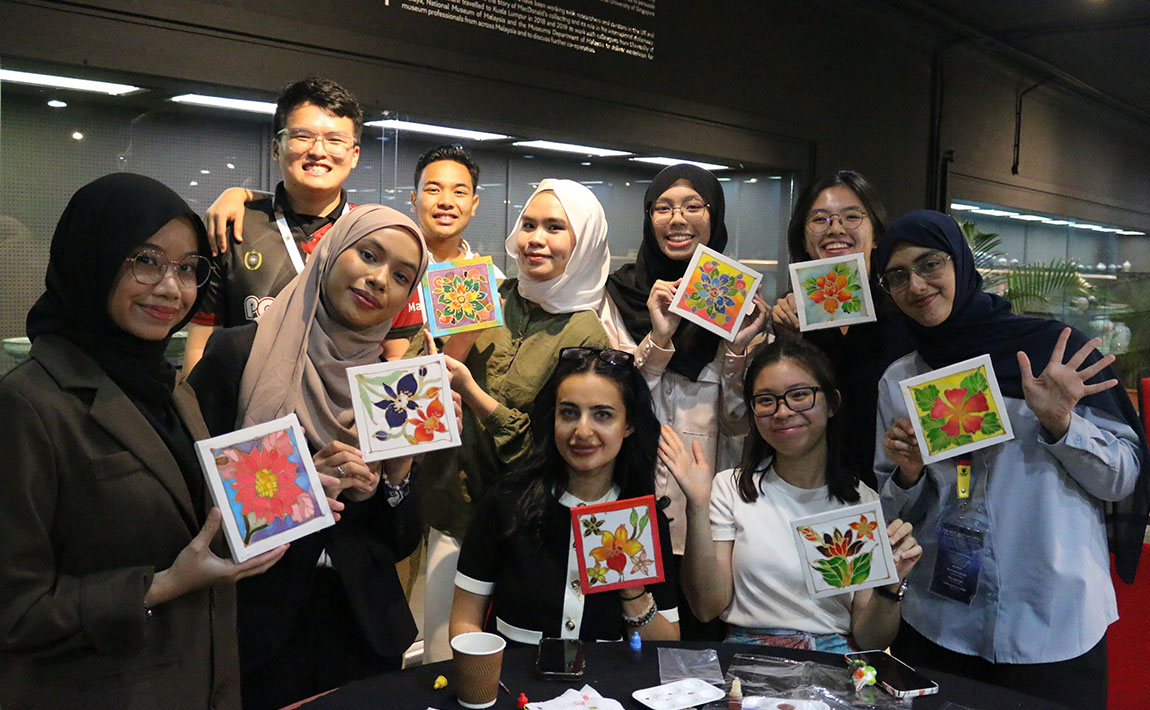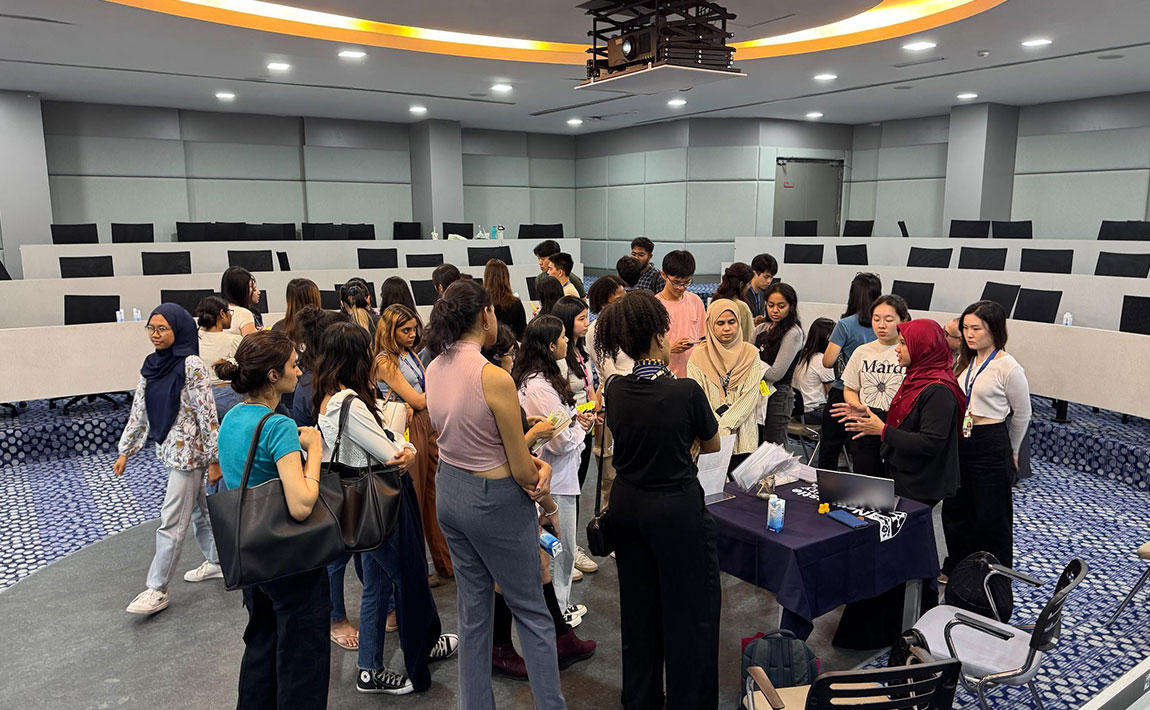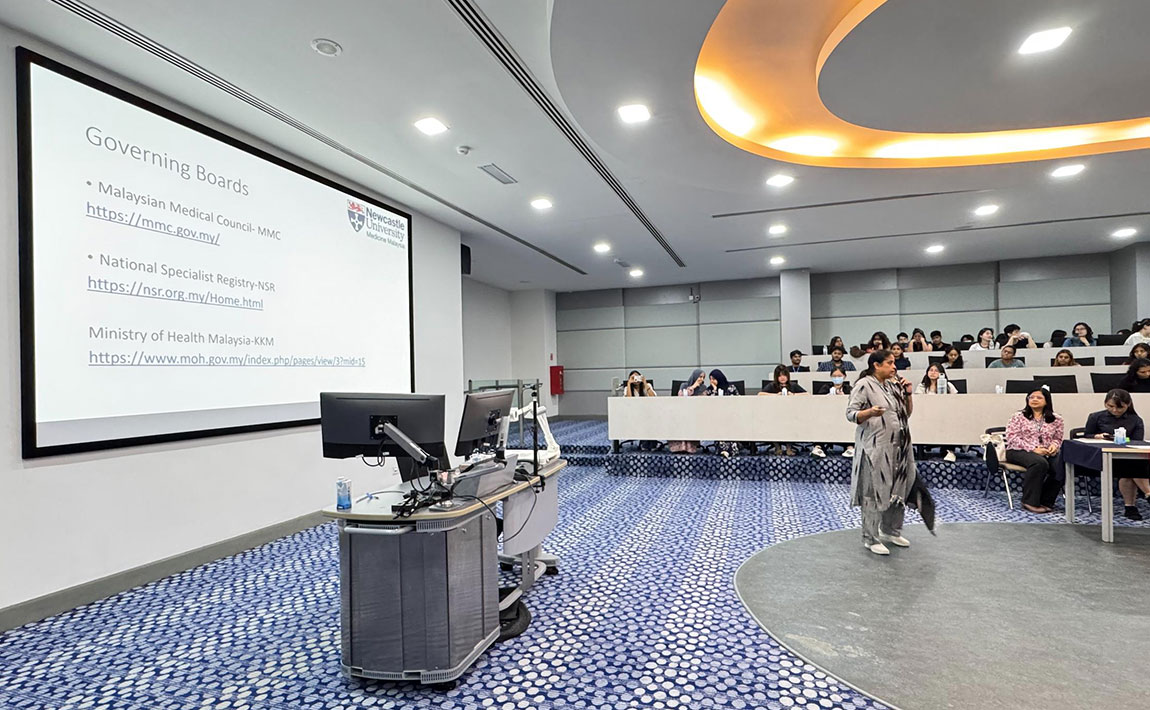Surviving & Thriving Like a Pro in Medical School
From presenting pioneering research to taking on international leadership roles in neurosurgery, Kavin Raj Purushottaman, a Year 5 MBBS student is living proof that with passion, perseverance, and balance, you can go far.
15 April 2025
Why NUMed?
Kavin chose NUMed because it offers a great preparatory foundation for his neurosugery goals. The MBBS programme's connections give him the chance to further his specialty training in the UK while offering research opportunities that align with his interests. He also appreciates the supportive lecturers, solid clinical exposure, and flexibility to take electives or participate in exchange programmes worldwide. As a bonus, the spiral curriculum provides a progressive, integrated approach to learning.
The challenges of medical school have not slowed him down. If anything, he has attained some impressive accomplishments throughout his time here. For one, he is actively involved with the Society of British Neurological Surgeons (SBNS) and the Congress of Neurological Surgeons (CNS), and even served on the Organising Committee for the FRCS Surgical Neurology Viva Preparation Course.

Furthermore, he was the first medical student to present a neurosurgical research paper at the Neurosurgery Association of Malaysia conference, and the first NUMed student to organise an award-winning international surgical symposium through the university's Surgical Society. He was later chosen as the International Ambassador for the Neurology & Neurosurgery Specialty Interest Group (NANSIG) in the UK. In the midst of all that, he still manages to keep up his academic excellence, earning numerous merit awards along the way.
Wondering how he does it all? Here is what he has to say:
Fuelled by Passion
My decision to pursue medicine was shaped by a desire to understand the struggles people face in terms of health. Growing up in a family without any doctors, I have always been keenly aware of the disparities in healthcare, especially in developing countries where access to medical care is limited. This inspired me to pursue a career where I could offer affordable healthcare solutions to those in need.
Additionally, our family doctor played a significant role in my decision, emphasising that medicine is not just a career, but a path to personal growth and development. He spoke about the rewards of being able to make a tangible impact on people’s lives. Moreover, I am drawn to the unique nature of medicine as a profession—no other field requires the ability to navigate such a wide range of emotions in just a few hours. I believe I possess the resilience and emotional intelligence needed to thrive in such an environment, which further motivated me to pursue this career.
Relentless Perseverance
I have always made it a priority to keep practising and refining my skills, knowing that consistency and dedication are key to mastering any area of medicine. Time management has played a crucial role, allowing me to balance my academic responsibilities, hospital placements, research, and extracurricular activities while maintaining a high level of performance.
Relying on medical textbooks and practice questions has been invaluable in reinforcing my knowledge and preparing for exams. This disciplined approach to learning has enabled me to tackle complex topics with confidence. Additionally, I’ve made sure to take full advantage of my hospital placements, using these experiences not only to practise clinical skills but also to engage in research and networking opportunities. Being proactive in these settings has helped me build connections and gain insights into the latest developments in medicine.
Whenever I faced challenges or encountered something I didn’t understand, I would always make it a point to ask questions and seek clarification. I firmly believe that understanding the core concepts is essential for success, and I’ve never hesitated to ask for help when needed.
Finally, the support from my friends, family, and fellow students has been an incredible source of motivation. Their encouragement has kept me grounded and focused.

Embracing the Proper Proportions
Balancing academics and social life has always been an important aspect of my time at medical school, and I have found that the key to managing this effectively is setting aside dedicated time for each.
When I plan my schedule, I always make time for study sessions and moments of social interaction, recognising that both are crucial for my well-being. I take my breaks seriously as well, recognising that the human brain can only focus for about an hour at a time. By respecting these natural limits, I can maintain productivity while also making time for the people and activities I enjoy, ensuring that I am academically successful and well-rounded in my personal life.
In terms of life habits, I make sure to exercise three times a week, which helps me stay physically and mentally fit. I also try to maintain a healthy diet whenever possible, and prioritise stress-relief by spending quality time with friends and family. This balance between academics and personal well-being has been key to my success and overall happiness throughout my medical journey.
Any advice for our readers before you go?
Set a clear goal for yourself. Remember, setbacks—whether a failure in exams or other difficulties—are part of the journey. The most successful doctors and surgeons faced downfalls but used them as opportunities to learn and grow. Resilience is key, and each mistake or failure can be a valuable lesson that brings you one step closer to success.
Have a specialty in mind, even if that might change, as it provides motivation and direction. And don’t forget to take care of yourself. Burnout is a real risk, so it is better to pace yourself. Make sure to use the support system available at your university, whether peer mentors, academic mentors, or lecturers. You are not alone, and seeking help when needed can make a huge difference. Success in medicine doesn’t depend on being the smartest person. I wasn’t, but I worked hard!

